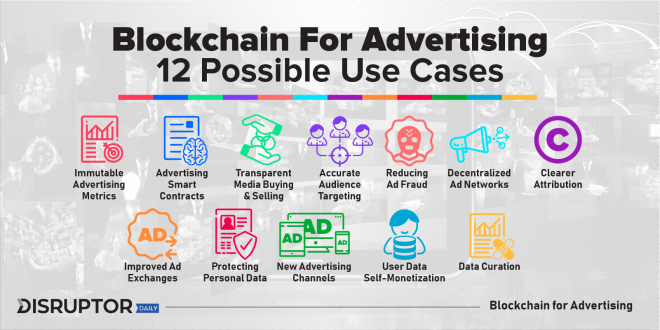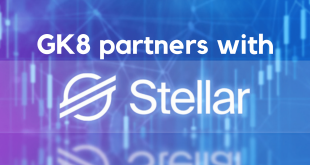Blockchain And Advertising: We live in a world of constant change in the digital advertising world. The goal of marketers is to expose their ads to their target audiences in the right places. Consumers are demanding greater privacy and security of their data to increase conversions. Through ad blockers, they can avoid getting followed across the internet by unwanted banner ads.
It is possible to demand more transparency about the type of data collected if they are interested. When consumers browse, they try to regain control over their online experience. Registration required According to recent data from Merkle, brands use their data to market and advertise.
The majority of consumers believe there are benefits to advertising, but 44% say some ads can be intrusive. Only 23% of respondents will share personal information regardless of the benefit. What is the next step for consumers and advertisers? Blockchain technology is thought to be part of the solution.
Blockchain: How Advertisers Can Benefit
Blockchains are distributed digital ledger technologies that create security and transparency, as well as decentralization. Those with access to the Blockchain can view digital records but cannot alter them. Once a document is placed on the Blockchain, it is immutable. Because blockchains store information and record transactions in real-time, advertisers can use them to keep track of their ad spend.
Finally, this would offer a level of transparency beyond what current methods provide. Kubient CEO Paul Roberts says that a pivot based on blockchain technology would improve transparency regarding inventory purchases, price, and who is buying it and provide more efficient media buying. Transparency does not only help to determine who is buying what, but it also helps to avoid some of the challenges associated with forgery.
According to Flynn Zaiger, CEO of Online Optimism based in New Orleans, “since user metrics will have been verified on the blockchain, forging will no longer be possible.”The benefits of transparency don’t end there, though. The advertising industry is characterized by rapid buying and selling of ads, as Roberts explained. As a result, inventory tracking and quality assurance are complicated. Blockchain technology has been able to keep up with the rapid pace of change.
Advertising in the digital age: Potential use cases
Our discussion has focused on the benefits of blockchain technology, including its speed, transparency, and security for advertisers. However, there are some specific uses for this technology.
Tracking Digital Marketing Campaigns
By leveraging blockchain technologies, companies can be on the leading edge of innovation. Using blockchain technology, digital campaigns can be more effectively tracked, says Zaiger. A conversion tracking system could ultimately be rolled out, helping track campaigns throughout the buying process. Zaiger explains that even as we move away from cookies, this would require a change to current tracking methods, which, he says, rely on platforms’ proprietary technology as well as a black box of data we cannot access or see. A representative of Austin, TX-based Oveit, Mike Dragan, shared other potential uses that might not be obvious at first glance.
Keeping your personal information secure
Thanks to internet service providers (ISPs) and web browsers, we are surrounded by private information today, such as browsing history and bank account information. Digital marketers can, however, keep their clients’ private information on their servers rather than on a third party’s servers by using blockchain-based certificates, as Dragan pointed out. Internet users can benefit from this by maintaining their anonymity and improving their privacy while browsing the web.
Users are rewarded for their efforts.
Blockchain technology is known for the concept of tokenization, in which assets are turned into digital tokens on the Blockchain. Users and advertisers alike may encounter challenges when it comes to ads, as Dragan explains. In addition to being costly for advertisers and challenging to manage, ads may be intrusive to many users. A blockchain-based browser lets users choose which advertisements they want to see and reward them in tokens. The Brave browser automatically blocks ads and web trackers, as well as its blockchain-based functionality. Additionally, users can choose the advertisements they want to see when receiving Brave Rewards.
Fraudulent clicking
Both clicks can cost advertisers a great deal of money in the advertising space. Advertising to competitive keywords often comes at a high price, and advertisers do not want to waste their budgets. Dragan says that centralized monitoring of digital adverts can help prevent click fraud by using blockchain-based decentralized servers.
Blockchain could drastically impact the digital advertising industry in three ways.
Advertisement affects businesses, individuals, and the whole internet platform. It’s data that drives companies such as Facebook and Google. Their specialty is showing you customized ads from companies, marketers, and developers based on your data. Several types of ads, messages, suggestions, and promotional trends are delivered from there. In recent years, there have not been many disruptions.
Up until Blockchain came along, this business was dominated by large companies. For me, Blockchain is the Blockchain that will disrupt the current marketing model because the Blockchain was used to build Bitcoin. We might provide the consumer with a better marketing structure, which would benefit new organizations looking to compete with the big companies.
Cost-savings
Due to the Blockchain, there may be a reduction in costs. At the moment, advertising can be expensive. Paying for customer data and facilitating payments are two of these costs. Due to the peer-to-peer nature of Blockchain, one of the first disruptive innovations is the elimination of intermediaries. As a result, businesses may be able to save money on advertising through this process.
A business that offers online advertising will typically charge a fee that includes processing costs, such as listing an ad through its platform. There would be another transaction fee when selling a good or service. Marketing and transaction costs are usually passed on to consumers. Through blockchain technology, businesses would be able to buy ads and complete transactions at little or no additional costs, which would give them a competitive advantage by being able to adjust their prices as necessary.
In conjunction with IBM, Mediaocean, a software company for advertising, has already announced a collaboration to provide transparency to advertising spend using Blockchain. Over the last five years, the Brave browser has also been receiving a lot of attention. Ads and tracking are blocked by default in Brave. It is a system of decentralized credit for its ad network that uses BAT or Basic Attention Token. Brave’s payment feature users are rewarded for viewing advertisements, while marketing companies reportedly increase click-through rates. Users can view advertisements to earn BAT. The trend is likely to become a new norm in advertising within the next few years.
Incentives for consumers
Nowadays, most online stores and websites track you when you visit them. You may have left the business knowing where you went, what you looked at, and how many clicks it took you to reach the site. The company then uses this information to attempt to sell to you. You can apply the same logic to Facebook and other companies that have access to your data – such as how long you spent viewing a post. A business can sell this information and use it to better prepare for the future.
As a result of Blockchain, companies will reward or compensate consumers for voluntarily providing information securely and safely. Essentially, you are rewarded for your participation. The Blockchain could become a tool that keeps consumers safe while also rewarding them for providing companies with vital information to help them target their advertising more effectively. Information sharing may no longer be necessary at intrusive levels as a result of this.
Even though Blockchain will not be gone anytime soon, it can disrupt the status quo and shed light on a new, user-friendly marketing approach. Singapore Airlines recently introduced a loyalty program that allows customers to convert their miles into KrisPay points by downloading a blockchain-based loyalty wallet. Afterward, these devices can be scanned as QR codes on partner merchants’ websites to purchase different products and services.
Another company in the space demonstrating innovation is American Express. It built its blockchain solution to tokenize customer loyalty data instead of storing it. With this technology, the company can store transaction data and trigger rewards by triggering intelligent contracts that create and award points.
Email Marketing
Chances are, you receive daily emails from a wide array of businesses in your email inbox. Sales are constantly booming, or the next hot commodity is advertised. The deeper you go, the more you discover a spam filter with spam from businesses that may have bought your information from another firm. It is pretty easy to understand how blockchains disrupt spam emails.
Businesses can reward recipients for accepting emails by implementing a small microtransaction on the Blockchain, which discourages spammers by enforcing a cost. It would become expensive to send bulk spam emails to companies that send millions of emails daily. Businesses could reward recipients even more if they clicked on the links and shopped.
Using the Blockchain, emails could also be authenticated to guarantee their legitimacy. Salesforce, for example, was awarded a patent describing how Blockchain could be used to stop spam emails from flooding our inbox. Even though Blockchain can solve several weaknesses in the advertising industry, there are still several challenges as companies adopt the technology. When advertisers adopt Blockchain for digital advertising, PWC recently discussed a few of the biggest obstacles they face.
In complex ecosystems, misalignment of interests among ecosystem participants and lack of regulatory standards make regulatory compliance challenging. This is just the beginning of the possibilities Blockchain could have in disrupting advertising. Companies and firms will likely see greater technology adoption as it becomes more secure and beneficial for consumers. In the meantime, firms need to build the necessary infrastructure to start using Blockchain and seek more ethical ways to collect customer data.
Conclusion
Online advertising could be revolutionized by blockchain technology. As a result of transparency, advertiser, publisher, brand, and consumer accountability will be more apparent, and the industry can use it for other purposes.
FAQs:
Blockchain can be a disruptive technology for the marketing industry because it lets you maintain current records, increase data security, and transparent display of consumer behaviors. In turn, this data plays a direct role in significant business decisions, such as introducing new products, setting prices, and designing future marketing campaigns.
In addition to managing traffic, measuring the success of advertising campaigns, and building trust, advertisers can utilize the Blockchain to select the right publishers. Costs are reduced, and transactions are sped up. To see the distribution of goods, consumers must understand the entire process.
The Blockchain may be the most disruptive technology to affect marketers of all types yet. Digital marketing is primarily associated with things like AI and analytics. Blockchain allows two parties to transact with each other without requiring third-party verification.
IBM is the world’s largest company embracing blockchain technology, as mentioned earlier. Incorporating hyper ledgers and the IBM cloud into companies’ systems, the tech giant invests over $200 million in research and development.
People and organizations can agree on and record information in the Blockchain without having it. A third party approves it, as the technology does not require a third party to do so.
 Next Tech Magazine Get The Latest Technology Updates
Next Tech Magazine Get The Latest Technology Updates







